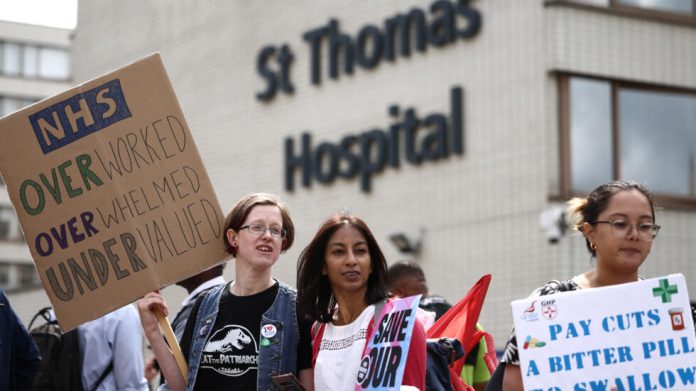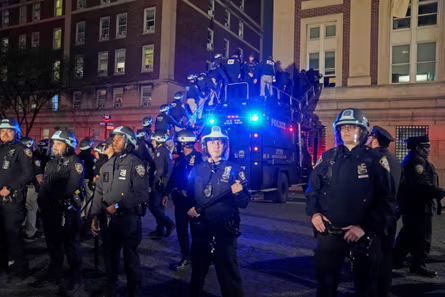Thousands of senior doctors in England have gone on strike for the first time in ten years in protest of the government’s meager pay increase offer. The strike is expected to cause significant disruption to the health system.
At 07:00 local time on Thursday, consultant doctors and hospital-based dentists began the largest industrial action since 2012. The nation’s state-funded National Health Service (NHS) issued a warning that the 48-hour consultants’ strike would severely disrupt the British healthcare system.
The walkout, which will last until Saturday morning local time, has forced thousands of scheduled appointments to be rescheduled. It only spares the so-called Christmas Day cover and a small amount of routine work.
read more: UK Junior doctors set to stage biggest protest over pay and working conditions
The British Medical Association (BMA) polled more than 24,000 consultants in June about the strike, with the vast majority (20,741 or 86%) voting in favor.
The junior doctors’ five-day walkout over pay ended two days prior to the start of the strike.
The Ipswich and Colchester Hospitals’ chief executive, Nick Hulme, claims that because half of the senior doctors there are on strike, they have stopped seeing many patients and won’t be present to oversee the work of junior doctors.
He continued, “You had to cancel the entire list of patients if, for instance, an anesthetic consultant failed to show up for work. “You could be left with an entire team, which would make them effectively unemployed for the day.”
The NHS’s most senior doctors, and consultants, could not be covered by other clinical staff, according to London NHS Trusts.
People should call 999 in cases of life-threatening emergencies and NHS 111 online in cases of other health issues during the 48-hour strike.
The BMA has criticized the government’s promise that consultants will receive a six percent pay increase, calling it “derisory” and pointing out that over the past 14 years, doctors’ real take-home pay has decreased by more than a third.
The government has instituted strike legislation as a fanciful response to the conflict in order to control industrial actions in the crucial industries of the nation, requiring the staff to provide a minimal level of service during the strike or risk being fired.













